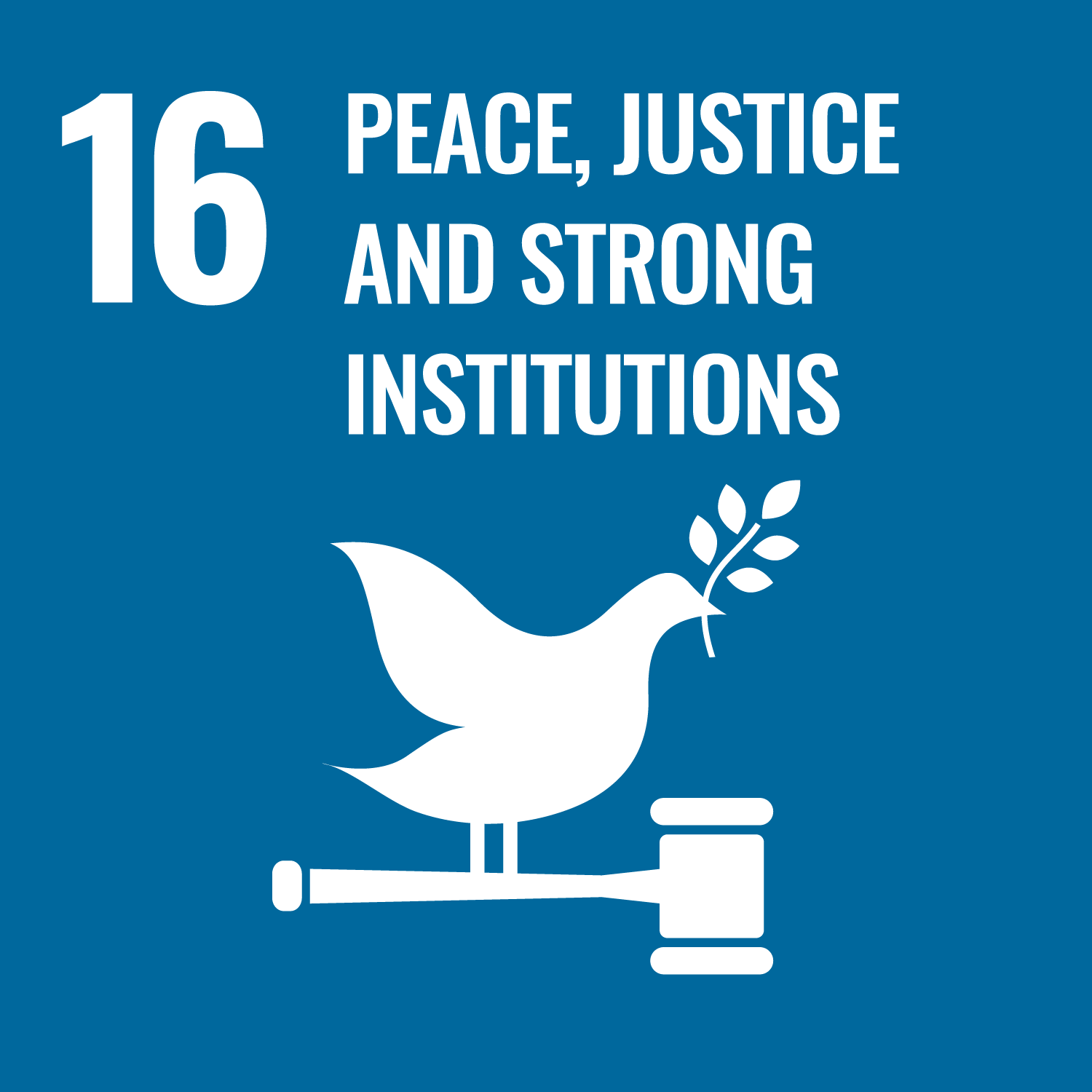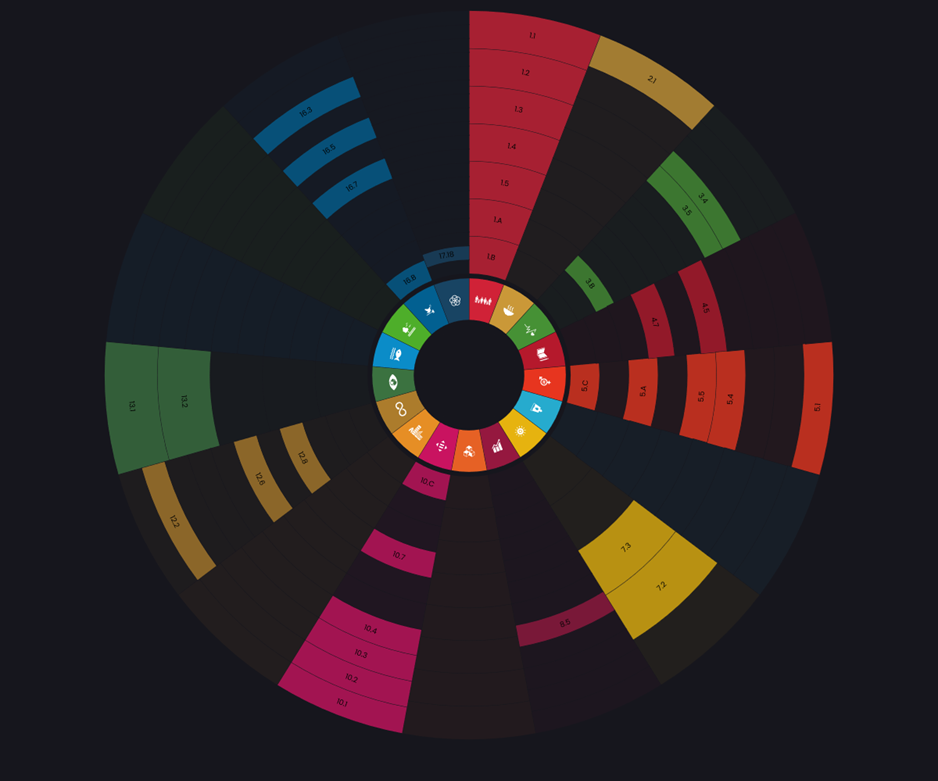Dr Lilia Wasserka- Zhurakhovska
Lecturer in Management
J.E. Cairnes School of Business and Economics, University of Galway



Lilia's research endeavours revolve around probing into behavioural economics and management. Specifically, she delves into unravelling the intricate decisions of individuals influenced by social preferences. Throughout her studies, she has found that factors such as fairness, aversion to inequity and lies, the aspiration for collaborative efforts, and other non-monetary utility considerations significantly shape decision-making processes.
Her research methods encompass a blend of field, laboratory and online experiments. Over the years, her focus has expanded to encompass management issues, such as the exploration of women's representation in leadership roles. Furthermore, she brings a wealth of teaching experience across various academic levels including Bachelor, Master's and PhD programmes.
Lilia's work contributes to these SDGs

Lilia has made significant contributions to SDG 16 Peace, justice, and strong institutions, across multiple papers. Through experimental studies and analyses, she has explored various aspects of decision-making, cooperation, fairness and leadership, which are essential components of promoting peace, justice and strong institutions.
Her research delves into the complexities of cooperation, conditional cooperation, and decision-making in scenarios like the prisoner's dilemma, shedding light on the motives behind individuals' actions. By studying communication dynamics among stakeholders and the effects of participation procedures, she provides insights into how impartial decision-making can be influenced and how institutions can be strengthened through effective communication and participation.
Additionally, Lilia investigates the impact of leadership on ethical decision-making, with a focus on gender differences. Her findings highlight the importance of understanding how leaders' behaviours can affect group dynamics and overall ethical standards within organisations, contributing to the promotion of just and accountable institutions.
Furthermore, she explores discrimination, both in terms of gender and sexual orientation, within decision-making contexts. By uncovering biases and behavioural patterns, her research contributes to efforts aimed at reducing inequalities and promoting inclusivity within institutions.
Overall, Lilia's work provides valuable insights into the dynamics of decision-making, leadership and fairness, which are fundamental to the advancement of SDG 16 and the establishment of peaceful, just and inclusive societies.
Her methods include field, laboratory and online experiments as well as incentivised and non-incentivised surveys. She has interdisciplinary and international co-authorships with economists and lawyers from Germany, Denmark, Norway, Austria, Switzerland and the US. Furthermore, she has worked with experts in different organisations and companies in the past and will continue to do so in the future.
Key Target: 16.7 Ensure responsive, inclusive and representative decision-making

Teaching

Econometrics, Advanced Module Economics, Behavioural Economics
Lilia's teaching efforts have significantly contributed to multiple Sustainable Development Goals (SDGs) by equipping students with skills and knowledge relevant to economic growth, organisational effectiveness, and social wellbeing. Courses like Econometrics and Advanced Module Economics prepare future professionals for effective engagement in economic activities, thus aligning with SDG 8 (Decent work and economic growth). Furthermore, her courses on Behavioural Economics address psychological aspects of decision-making, promoting ethical behaviour within companies and supporting SDG 9 (Industry, innovation and infrastructure). Additionally, these courses also contribute to SDG 16 (Peace, justice, and strong institutions).
Supporting Targets: 8.5 Full employment and decent work with equal pay; 9.5 Enhancing scientific research, upgrading the technological capabilities of industrial sectors, and encouraging innovation; 16.7 Ensuring responsive, inclusive, and representative decision-making
Thesis supervision
Sustainable Strategies and Behavioural Methods
Research conducted by her PhD students, such as Kim's dissertation focusing on organisational change and ethical behaviour, directly contributed to SDG 8 and SDG 16. Similarly, Tigran's research on decision-making behaviours and cooperation dynamics contributed to SDG 10 (Reduced inequalities) and its specific target 10.2 on empowering and promoting the social, economic and political inclusion of all.
In the course Sustainable Strategies and Behavioural Methods, Lilia will continue her SDG contributions. By addressing biases in decision-making and exploring methods to overcome them, the course aligns with SDG 8. Discussions on behavioural-change strategies will contribute to SDG 9 while exploring reciprocity and trust will support SDG 16. Overall, the course will empower students to drive positive change, advancing SDGs related to economic growth, social wellbeing and environmental sustainability.
Supporting Targets: 8.5 Full employment and decent work with equal pay; 16.7 Ensuring responsive, inclusive, and representative decision-making; 9.5 Enhancing scientific research, upgrading the technological capabilities of industrial sectors, and encouraging innovation
Direct impact SDG Targets:
17.18 - Enhance availability of reliable data
Indirect impact SDG Targets:
1.1 - Eradicate extreme poverty
1.2 - Reduce poverty by at least 50%
1.3 - Implement social protection systems
1.4 - Equal rights to ownership, basic services, technology and economic resources
1.5 - Build resilience to environmental, economic and social disasters
1.A - Mobilize resources to implement policies to end poverty
1.B - Create pro-poor and gender-sensitive policy framework
2.1 - Universal access to safe and nutritious food
3.4 - Reduce mortality from non-communicable diseases and promote mental health
3.5 - Prevent and treat substance abuse
3.B - Support research, development and universal access to affordable vaccines and medicines
4.5 - Eliminate all discrimination in education
4.7 - Education for sustainable development and global citizenship
5.1 - End discrimination against women and girls
5.4 - Value unpaid care and promote shared domestic responsibilities
5.5 - Ensure full participation in leadership and decision-making
5.A - Equal rights to economic resources, property ownership and financial services
5.C - Adopt and strengthen policies and enforceable legislation for gender equality
7.2 - Increase global percentage of renewable energy
7.3 - Double the improvement in energy efficiency
8.5 - Full employment and decent work with equal pay
10.1 - Reduce income inequalities
10.2 - Promote universal social, economic and political inclusion
10.3 - Ensure equal opportunities and end discrimination
10.4 - Adopt fiscal and social policies that promotes equality
10.7 - Responsible and well-managed migration policies
10.C - Reduce transaction costs for migrant remittances
12.2 - Sustainable management and use of natural resources
12.6 - Encourage companies to adopt sustainable practices and sustainability reporting
12.8 - Promote universal understanding of sustainable lifestyles
13.1 - Strengthen resilience and adaptive capacity to climate related disasters
13.2 - Integrate climate change measures into policies and planning
16.3 - Promote the rule of law and ensure equal access to justice
16.5 - Substantially reduce corruption and bribery
16.7 - Ensure responsive, inclusive and representative decision-making
16.B - Promote and enforce non-discriminatory laws and policies

Research

Featured Publications
|
Peer-reviewed publications |
SDGs |
|---|---|
|
Rau, H. A., Samek, A. and Zhurakhovska, L. (2022). "Do I care if you are paid?" Field experiments and expert forecasts in charitable giving. Journal of Economic Behavior & Organization, 195, 42-51. |
1.4; 16.6 |
|
Kleine, M., Langenbach, P. and Zhurakhovska, L. (2017). How Voice Shapes Reactions to Impartial Decision-Makers: An Experiment on Participation Procedures. Journal of Economic Behavior & Organization, 143, 241-253. |
16.7 |
|
Engel, C. and Zhurakhovska, L. (2016). You Are in Charge - Experimentally Testing the Motivating Power of Holding a Judicial Office. Journal of Legal Studies, 46(1), 1-50. |
16.3, 16.4 |
|
Kleine, M., Langenbach, P. and Zhurakhovska, L. (2016). Fairness and Persuasion. How Stakeholder Communication Affects Impartial Decision Making. Economics Letters, 141, 173-176. |
16.6 |
|
Engel, C. and Zhurakhovska, L. (2016). When Is the Risk of Cooperation Worth Taking? Motivating Forces in an Experimental Prisoner's Dilemma. Applied Economics Letters, 23(16), 1157-1161. |
16.7 |
|
Engel, C. and Zhurakhovska, L. (2014). Conditional Cooperation with Negative Externalities - An Experiment. Journal of Economic Behavior & Organization, 108, 252-260. |
16.5; 10.2 |
|
Member of the Management Science Reproducibility Collaboration |
SDGs |
|---|---|
|
Fišar, M., Greiner, B., Huber, C., Katok, E., Ozkes, A. I. and Management Science Reproducibility Collaboration (2023). Reproducibility in Management Science. Management Science, 70(3), 1343-1356. |
9.5; 17.18 |
